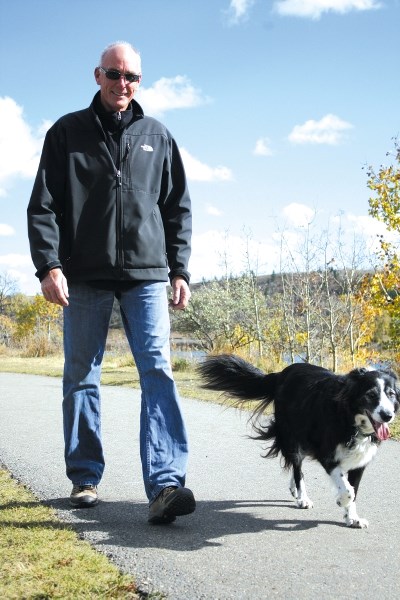It should come as little surprise that 2012 has been breaking the mold where weather is concerned.
After an unseasonably warm 2011-12 winter, followed by a June of sheer saturation, it turned out to be one of the warmest summers on record.
“In that part of Alberta, it’s been one of the warmest summers on record,” said David Phillips, a climatologist and weather historian with Environment Canada for a remarkable 43 years.
“That first part of July came and you were almost in a weather-free zone.”
Phillips said since August, the Cochrane area has had less than 40 per cent of the regular levels of precipitation, which has led to an increase in forest fires and subsequent fire bans this year; he added that while there is no reason to panic yet, water levels are lower than normal
And the summer warmth seems to have extended into fall, said Phillips, explaining the tug-of-war between American and Canadian air flow that will continue until winter sets in.
“That’s what fall is — it’s summer trying to stay on and winter trying to get a foothold.”
While weather models are predicting a “longer and tougher” winter than last year, Phillips said there’s not a lot of confidence in those models as of yet and that any winter could be considered cold when compared to last year.
“There is an El Nino out there,” said Phillips. “But even if it turns out to be an El Nino winter, it will turn out to be tougher than last year, which was one of the mildest winters on record.”
Phillips said in general, the cliche “our winters sure aren’t what they used to be” seems to be holding true.
“Southern Alberta’s cross to bear is the length of their snow season,” he said; while the Cochrane area may not suffer the extremities faced by the East Coast, the area does have a lengthy season that can meet with snow as early as September and as late as May.




